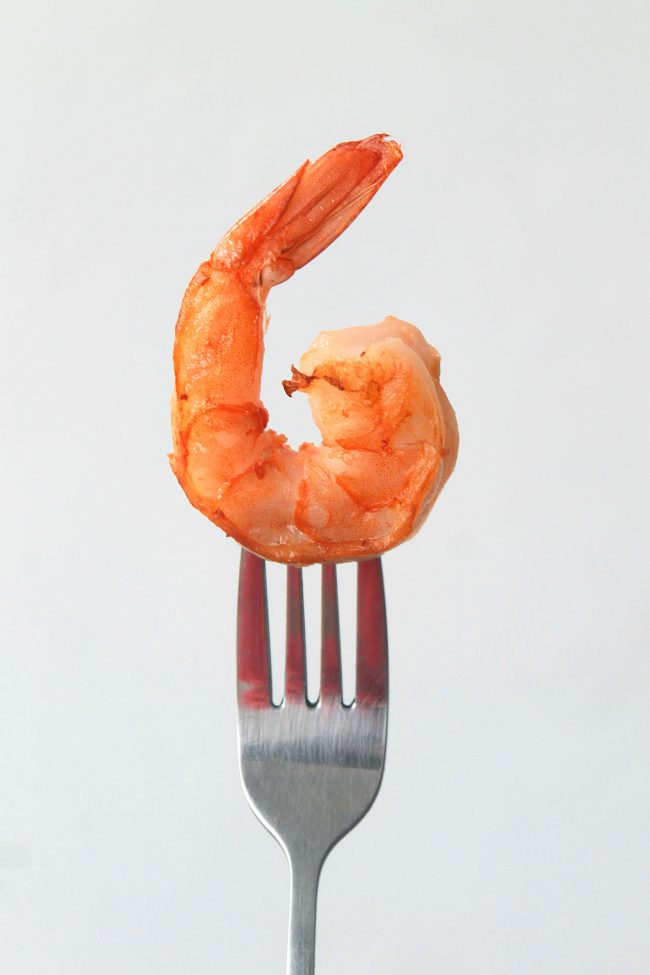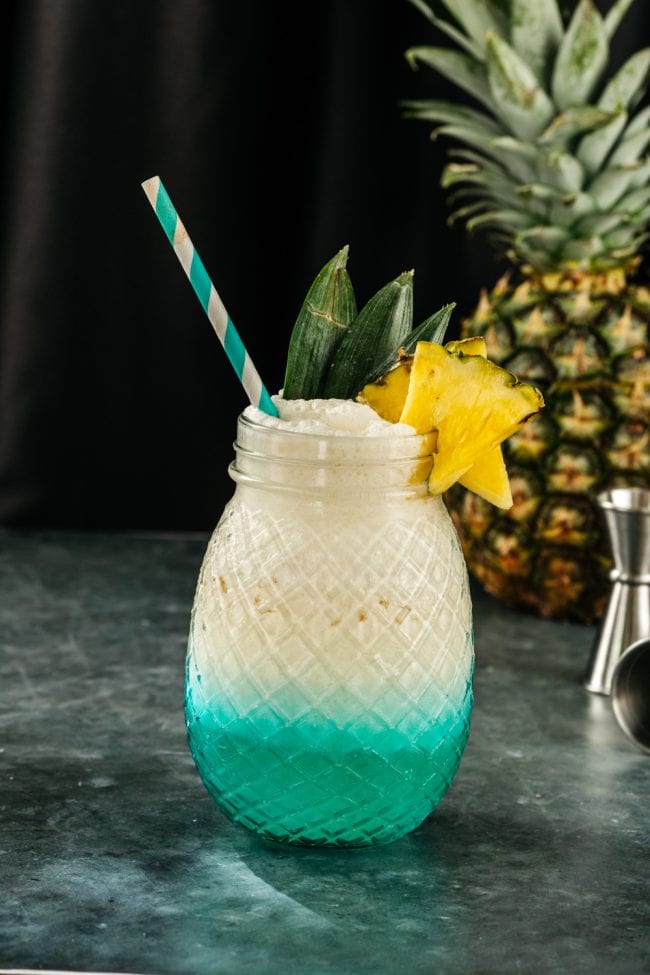Seafood is one of the best things you can eat on keto.
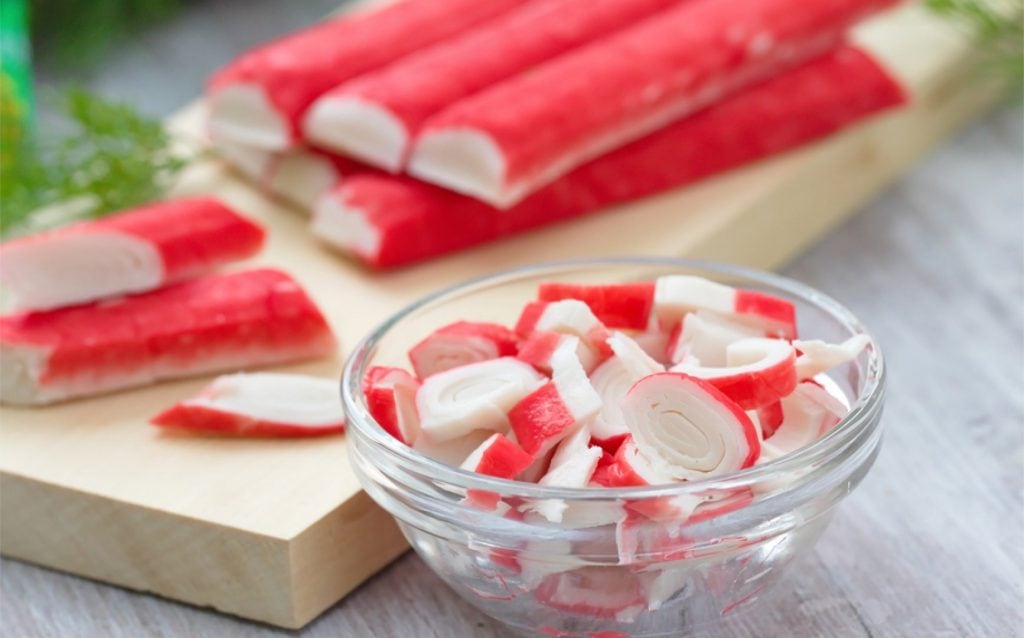
It has plenty of omega 3 fatty acids and DHA, which is necessary for brain health and proper immune function. Research even shows that omega 3 can prevent Alzehimer’s disease.
So you might be wondering if imitation crab is a good option on keto as it’s affordable and easy to prepare.
Below, I’ll answer the question, “Is imitation crab keto?” I’ll also compare the nutritional value of imitation crab to king crab while addressing some health concerns.
Is Imitation Crab Healthy?
As the name suggests, imitation crab isn’t the real thing. Many imitation crab brands state that it’s only three percent crab, while the rest is a mixture of fish leftovers.
Think of it as hotdogs of the sea.
A three-ounce serving contains 13 grams of net carbs, so although it might seem like a good keto choice, this doesn’t tell the whole story.
These highly processed foods are full of starch, vegetable oils, sugar, sorbitol, egg whites and artificial flavorings, so you can’t enjoy it on keto.
Imitation Crab Vs King Crab Nutritional Information
| Imitation Crab | King Crab | |
| Carbs | 13 grams | Zero grams |
| Healthy Fats | 0.4 grams | 1.4 grams |
| Protein | 6.5 grams | 16.4 grams |
| Calories | 81 calories | 82 calories |
| Added sugars | 5.3 grams | Zero grams |
| Starch | 6.5 grams | Zero grams |
| Sodium | 715 mg | 911 mg |
| Cholesterol | 17 mg | 45 mg |
This graph shows how poorly imitation crab performs from a nutritional standpoint compared to organic fresh crab.
You can consume as much king crab as you want on a low-carb diet, without being knocked out of ketosis. But when you eat imitation crab, you’re hampering ketosis while triggering inflammation due to the harmful vegetable oils and additives.
How Is Imitation Crab Produced?
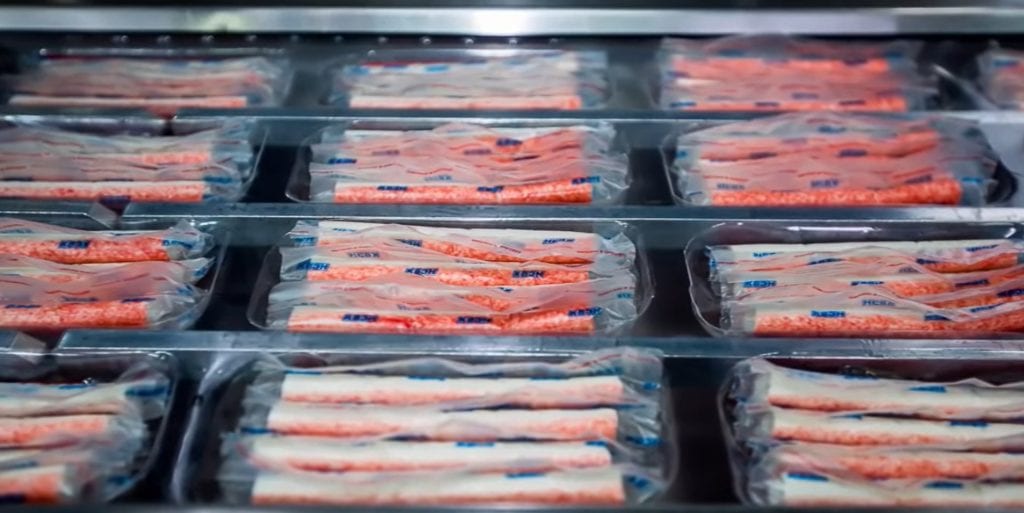
So how do companies manufacture this fake fish?
Well, the process is enough to make you want to stay far away from imitation crab.
Manufacturers start off by using a paste called surimi as a base for the imitation crab. This surimi is like a jelly made from the leftovers of fish.
Obviously, nobody will buy seafood jelly because it sounds disgusting, so companies add starch, vegetable oils, sugars, gluten and artificial flavorings to make it edible.
As you can tell, these additives kick you out of ketosis and spike inflammation. Imitation crab also provides less nutrients, so you can’t expect to experience the same health benefits that fish is famous for.
Tip: When eating fish at a restaurant, always check if they use imitation crab because restaurants love this stuff. It’s super low cost and can taste like the real thing if prepared correctly.
A Word of Caution when Eating Seafood on Keto
Around 50 percent of the world’s fish supply is farm raised. This includes both imitation crab and real fish.
These farmed fish are on the same level, if not worse, than vegetable oils and added sugars.
Companies will feed farm-raised fish foods like:
- Canola meal
- Other fish
- Corn meal
- Wheat
- Animal byproducts
- Antibiotics
Things have gotten so bad that farmed fish are starting to develop deformities. Farmers will store up to two million fish in a space several meters wide. This makes it easy for disease to spread.
Toxicologist Jerome Ruzzin even found that farmed fish is five times more toxic than the next toxic food group.
Farm-raised fish contains around three times more omega-6 fatty acids than wild fish, triggering inflammation and increasing your chances of long-term health issues.
So when shopping for fish, always double-check that you have wild-caught fish.
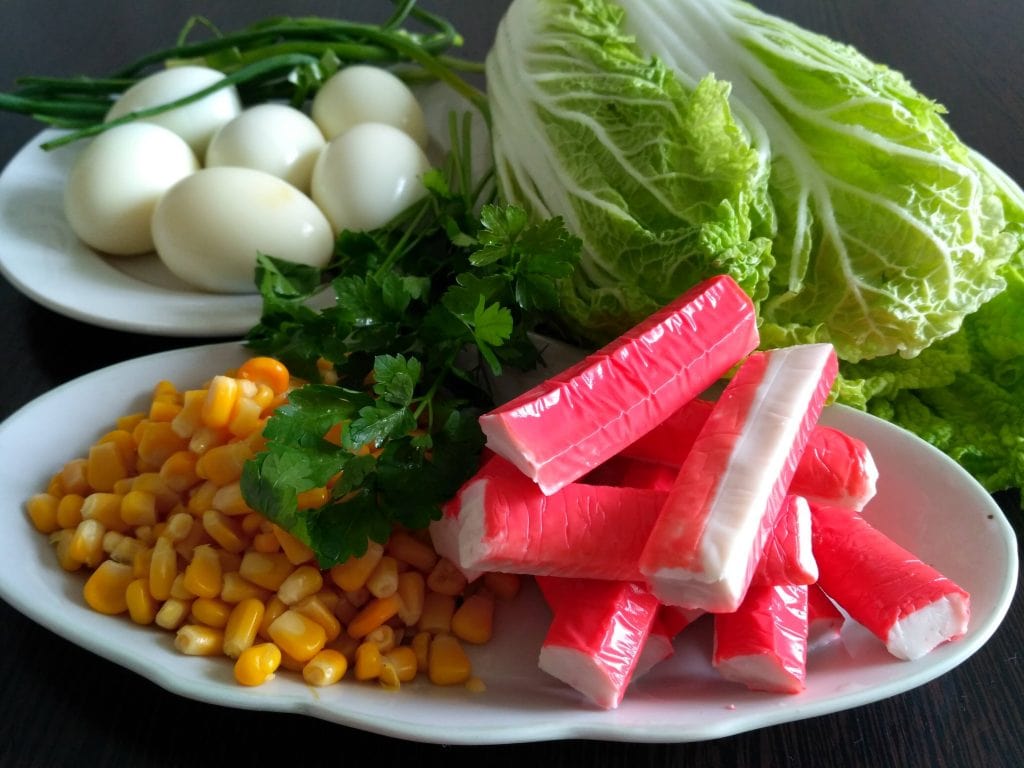
Alternatives to Imitation Crab on Keto
Thinking about enjoying seafood on a ketogenic diet without the harmful added sugars and vegetable oils? Opt for these imitation crab meat alternatives:
- King crab
- Crayfish
- Shrimp
- Salmon
- Sardines
- Tuna
- Mackerel
King Crab
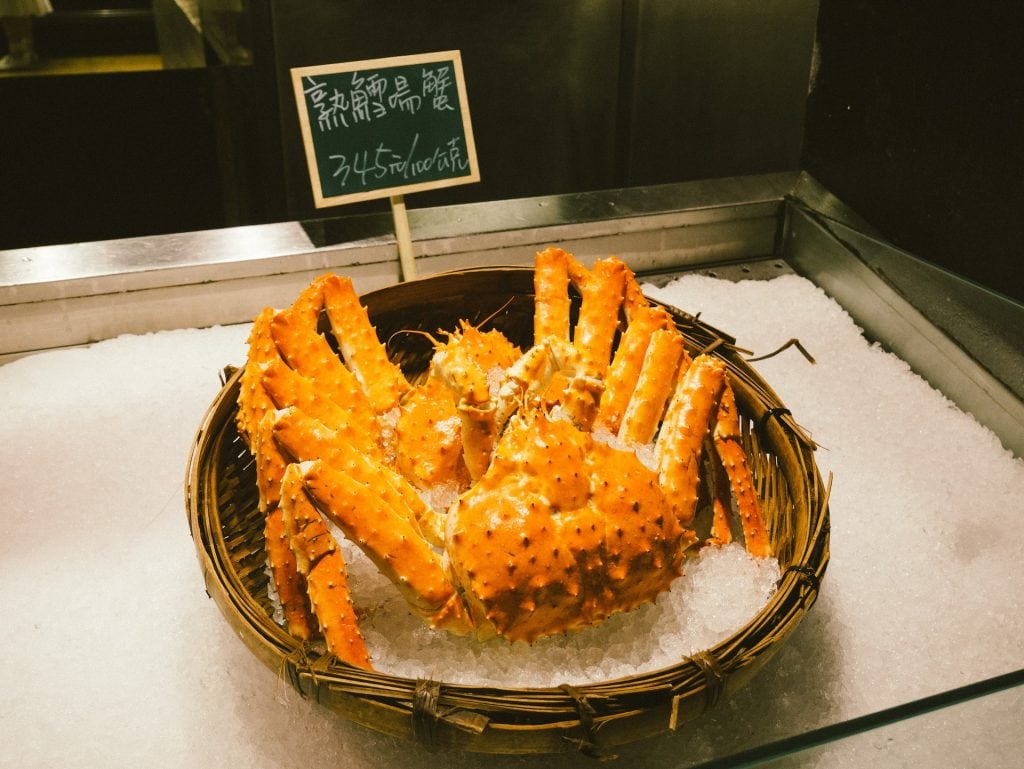
King crab allows you to enjoy the yummy taste of crab without the nasty ingredients.
King crab is also a good seafood choice if you want to build muscle, as a serving has 20 grams of protein.
The only drawback is that it’s low in fats, so you want to supplement your king crab consumption with coconut oil, butter or olive oil.
Crayfish
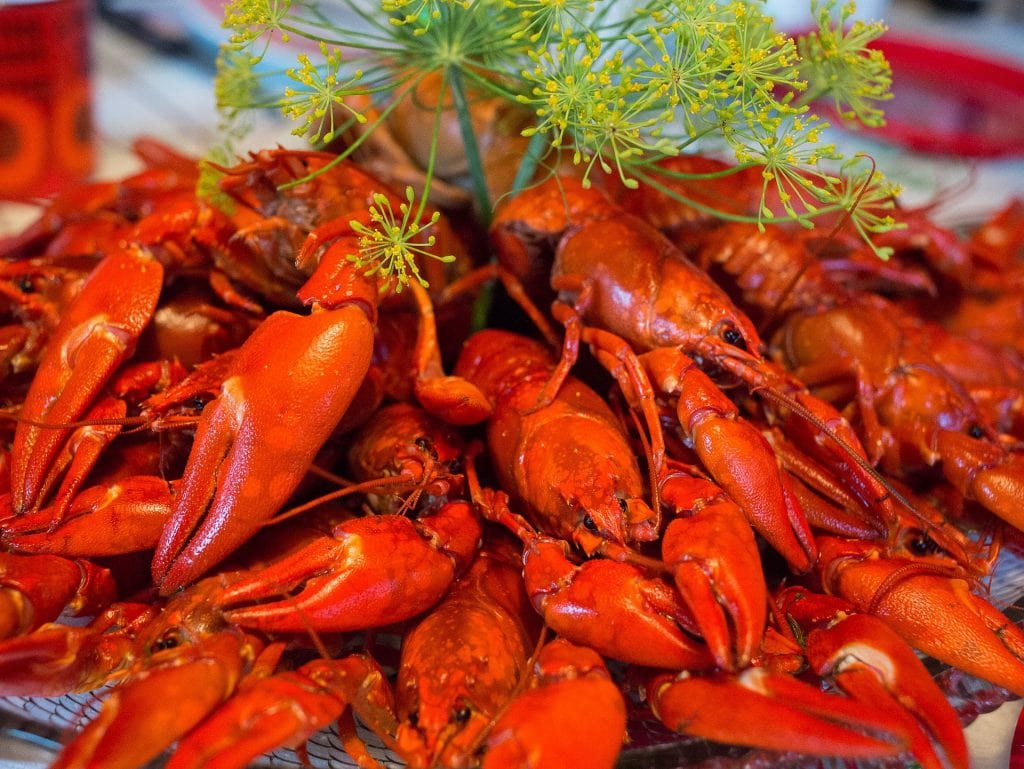
Crayfish is another tasty option on keto, with zero carbs, 70 calories and 14 grams of protein per three-ounce serving.
This high protein and low-calorie content is handy if you want to lose weight. The protein keeps you full, and the lack of carbs ensures you aren’t spiking insulin and blood glucose.
Crayfish are also packed with micronutrients and amino acids like:
- Valine
- Leucine
- EPA
- Phosphorus
- Vitamin B12
But always buy wild crayfish as the antibiotics farmers give farm-raised fish destroy most of these nutrients.
Shrimp
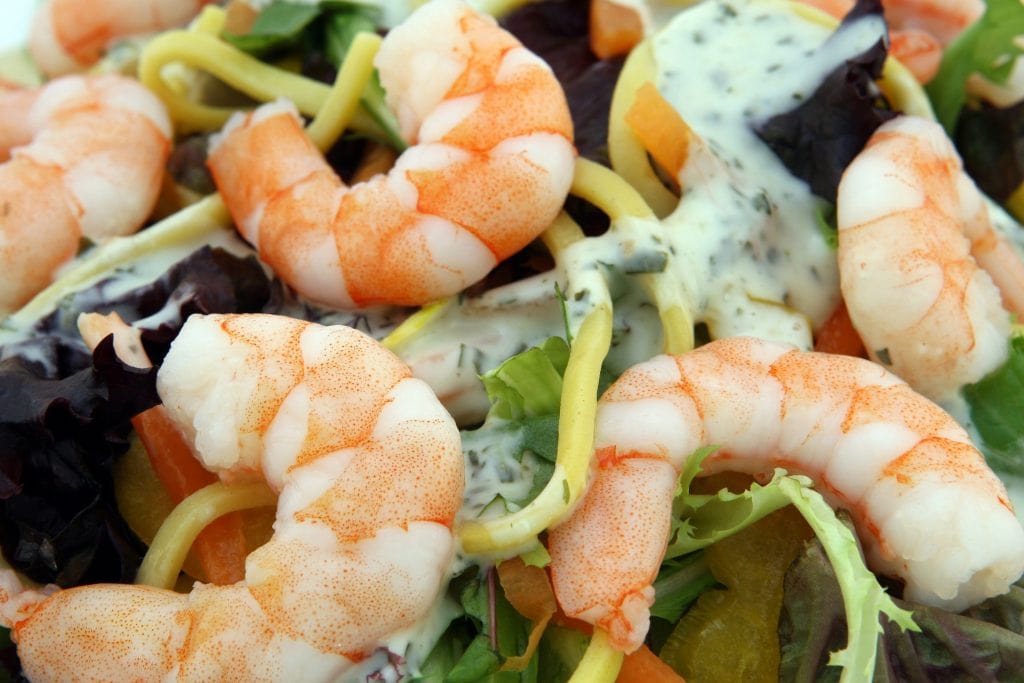
Shrimp offers a sweet and salty flavor that’s well-known amongst fish lovers. So you’ll be glad to know that shrimp is a healthy alternative to imitation crab cakes on keto.
A three-ounce serving of shrimp has just 0.2 grams of net carbs and 20 grams of protein.
What sets shrimp apart from other seafood is how versatile it is. If you don’t know what to make for dinner and have some shrimp in the freezer, simply defrost it and cook it alongside keto noodles, asparagus or a Caesar salad.
But remember that traditional shrimp cocktails aren’t allowed on a keto diet because it has 17 grams of total carbs per serving.
Salmon
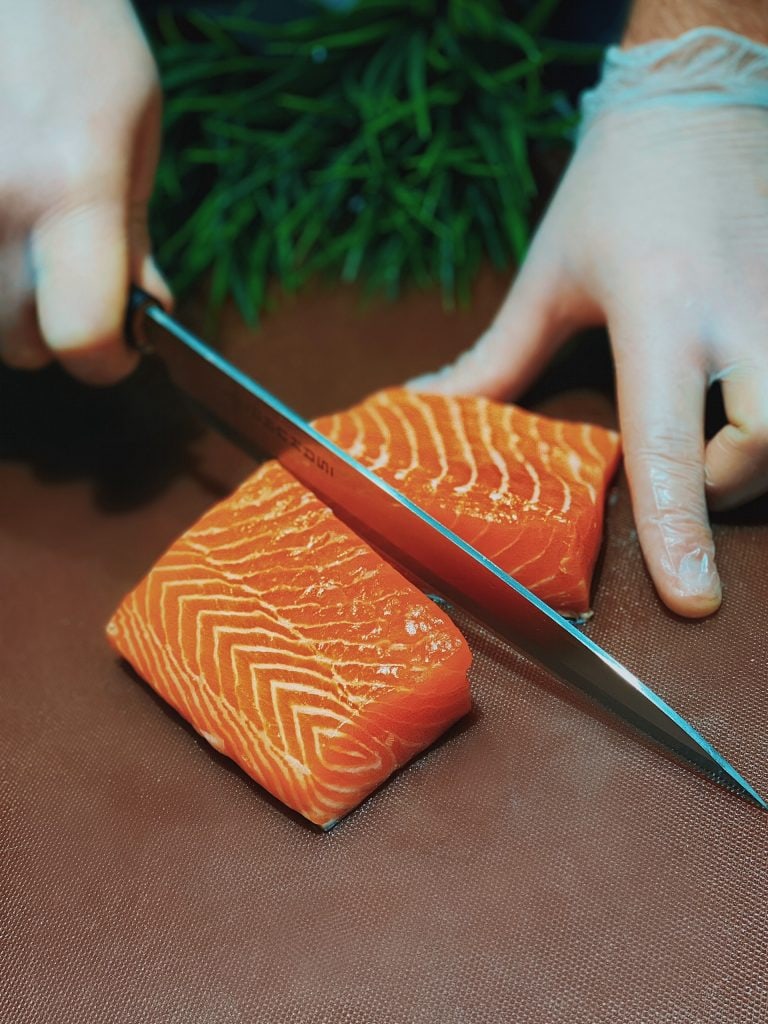
Wild-caught salmon is one of the healthiest foods you can eat. A serving of wild-caught salmon contains:
- Zero grams of carbs
- 17 grams of protein
- 11 grams of healthy fat
- Ample amounts of vitamins B3, B5, B6, B12 and selenium
But what stands out about salmon is the DHA (Docosahexaenoic Acid) content. A serving provides your body with 1.24 grams of DHA, which is more than most foods.
This DHA is especially important for pregnant mothers as it helps infants’ brains grow. This benefits a child’s cognitive development through childhood and into adulthood.
In contrast, medical papers show that low DHA levels in infants and teenagers can cause learning difficulties, poor memory and depression. So keep your DHA levels high by eating salmon once or twice a week.
Sardines

If I’m feeling hungry during the day, I like snacking on sardines because they are easy to carry around, and you don’t have to eat them with anything. You’ll also fuel your body with hard-to-find nutrients like:
- Selenium
- Phosphorus
- Vitamin D
- Niacin
- Iodine
Sardines are the perfect snack from a macronutrient point of view. One serving contains:
- 100 calories
- 12 grams of protein
- Five grams of fat
- Zero carbs
But watch out for sardines soaked and stored in vegetable oil because it promotes chronic inflammation. Instead, stick to salt water sardines.
Tuna
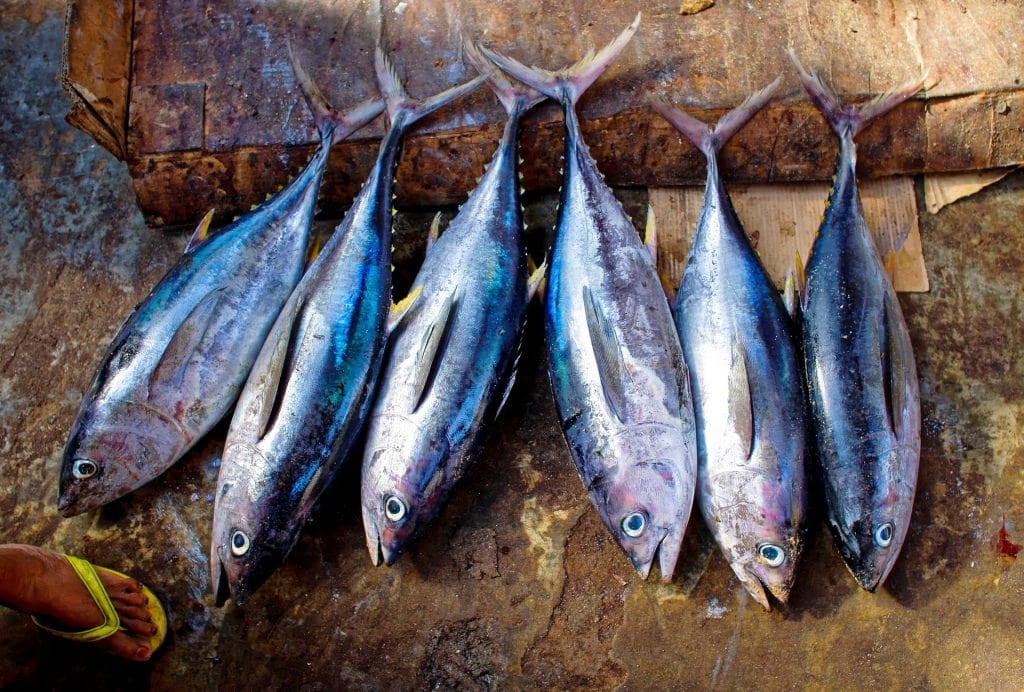
If you’re looking to build muscle, tuna is the best seafood alternative to imitation crab. One three-ounce serving has 24 grams of protein, similar to chicken and beef. It’s also super cheap since it only costs a few dollars for several cans.
It serves as a base for salads, keto noodles and sandwiches.
But tuna contains only one gram of fat per serving. So if you’re eating a lot of tuna, supplement your protein intake with fat by consuming more coconut oil, butter and eggs.
Mackerel
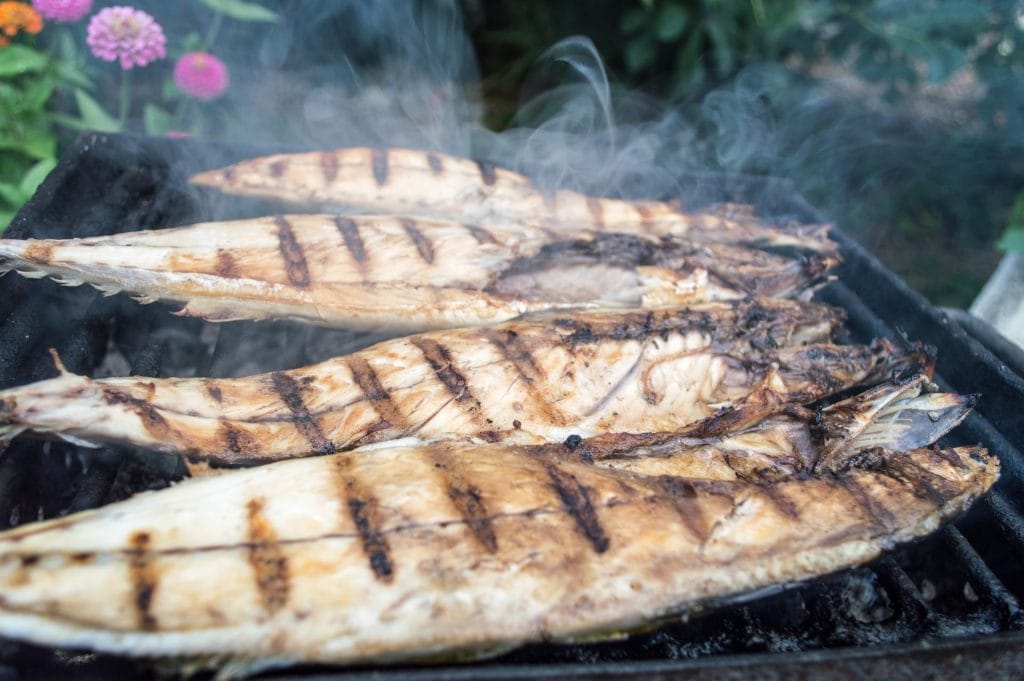
King mackerel, Atlantic mackerel and Spanish mackerel are all excellent options because they have zero carbs and 17 grams of protein per three-ounce serving.
I’m also a big fan of the taste, as mackerel is one of the only fish with a sweet and sour flavor and an oily texture. This makes it perfect when preparing salads, salsas and keto fries.
Final Thoughts on Is Imitation Crab Keto-Friendly
Imitation crab sticks aren’t keto friendly because they have starch, vegetable oils, added sugars and preservatives that interfere with ketosis. You’ll notice that it also has a fraction of the nutritional value of real crab meat, so you aren’t experiencing the benefits of fish.
Instead, opt for organic alternatives like king crab, crayfish, shrimp, salmon, sardines, tuna, snow crab and mackerel.
But remember that even though you’re consuming these healthy keto crab cakes, you still want to check the label to see if you’re buying wild fish and not farm-raised fish.
Written by
Matt Gaedke
Matt is a former college basketball player turned computer engineer who discovered his passion for health and nutrition after cutting sugar from his diet in 2016. That year he founded KetoConnect with Megha in order to share their ketogenic lifestyle through recipes, videos, and educational content. Matt is always seeking to grow and try new things, a passion he shares with his wife and two amazing sons.
